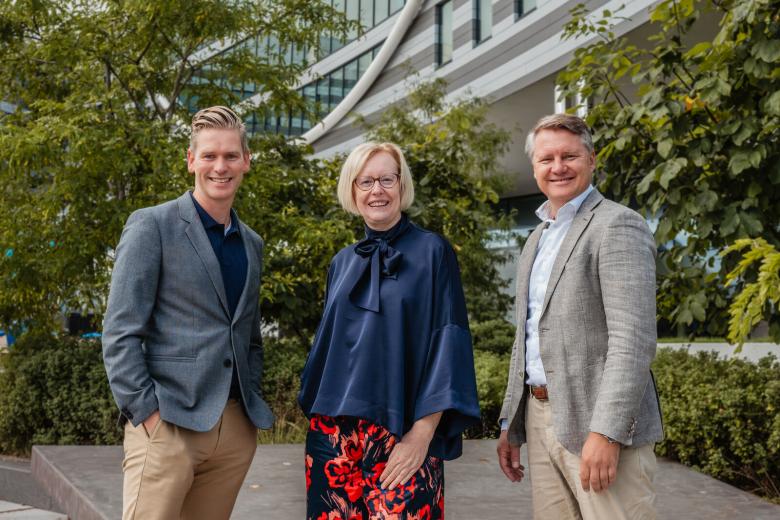Current international poverty line a ‘misleading shortcut method’, say experts
Billions of dollars in foreign aid could be spent more effectively if international poverty statistics weren’t so inaccurate. Dr Michail Moatsos, Assistant Professor at Maastricht University School of Business and Economics, and Kings’ College London, says current methods for calculating the international poverty line lead to a skewed picture of how poverty is distributed across the world – and this is hampering attempts to eradicate it.
“Currently, international donors cannot prioritize their funds based on the best possible information and therefore funnel those funds to those most in need around the world. A $2.15 per day poverty line, affords very different living standards across countries - even across low income countries alone,” he said.
The newly published statistical analysis tests the current method of poverty line calculation, and demonstrates several flaws in both its methods and its findings. As an example, Dr Moatsos points to the COVID pandemic, which in all likelihood increased the number of individuals living in conditions of poverty across the world. Yet, he says, the amount of uncertainty in the calculation of the poverty line do not allow us to even pinpoint the level of that increase - let alone its geographic distribution - at any reasonable level of certainty on a global scale.
The international poverty line is produced by the World Bank, by taking the middle, or median, value of national poverty lines created for every low income country. National Poverty Lines, in middle and low income countries are generally calculated as the cost of food that would allow for enough calories on average - typically around 2100kcal per day per person - and on top of that, a non-food budget to account for expenses on housing, education, health, heating, transportation, clothing, communications, and other relatively basic needs.
Beyond the generosity or frugality of each country’s poverty line, the most important aspect is its cross country comparability, which ensures similar living standards are being compared across nations. If a poverty line fails to do that, then our understanding of poverty is very fuzzy, and policy cannot be well informed from a global standpoint, precipitating the problem, said Dr Moatsos. For example, when updating the value of the international poverty line for the latest data, which results at a line of US$2.15 per day in 2017 prices, the World Bank claims that the impact of this updating on the poverty statistics is marginal. However, Moatsos and his co-author, Dr Achillefs Lazopoulos from ETH Zurich, demonstrate that the difference is as much as 190 million individuals.
The main problem with the current method, they say, lies in the comparisons of ‘purchasing power’ which sits at the heart of the poverty line calculations. Purchasing power parities are used by economists to compare average incomes across countries, but is sometimes also used in comparing living standards.
“Just as the World Bank assists the various states in defining poverty to express their national views, the Bank could also support the creation of globally comparable poverty lines along a commonly agreed upon framework. This framework already exists in the form of the Copenhagen Declaration.
“The World Bank, as an institution mandated in the fight against global poverty and entrusted with the monitoring of global poverty, does not need to force upon any country a particular definition of poverty, as indeed countries have already agreed upon a definition, and it is therefore a matter of actual implementation.”
The authors conclude that “the adoption of alternative methods for monitoring global poverty should be considered in official capacity with urgency”. But, says Dr Moatsos, the question remains if the World Bank will reconsider in ignoring the recommendation of its own Commission on Global Poverty to implement a cost of basic needs approach in monitoring global poverty.
Also read
-
SBE researchers involved in NWO research on the role of the pension sector in the sustainability transition
SBE professors Lisa Brüggen and Rob Bauer are part of a national, NWO-funded initiative exploring how Dutch pension funds can accelerate the transition to a sustainable society. The €750,000 project aims to align pension investments with participants’ sustainability preferences and practical legal...
-
Maastricht University, BDO and AFAS will conduct research into sustainability at family businesses
Maastricht University Center for Entrepreneurship and Innovation, BDO Accountants and Advisors and AFAS Software will conduct research into the challenges and opportunities for Dutch family businesses regarding the ecological sustainability task.
-
Prestigious European grant for three UM researchers
Three researchers from Maastricht University (UM) will receive a prestigious ERC Starting Grant from the European Research Council. They will receive €1.5 million each. Their funding is part of the EU Horizon Europe programme.